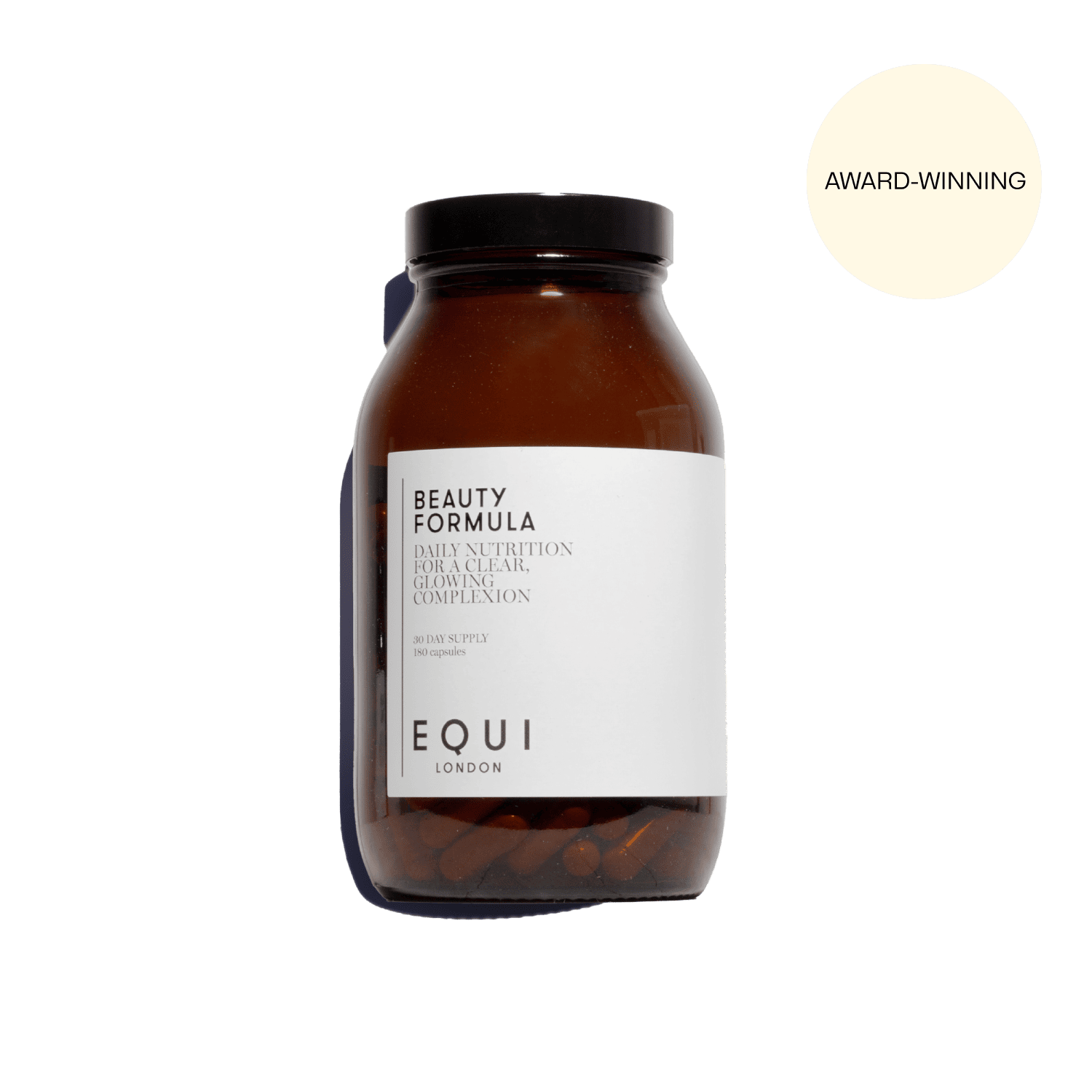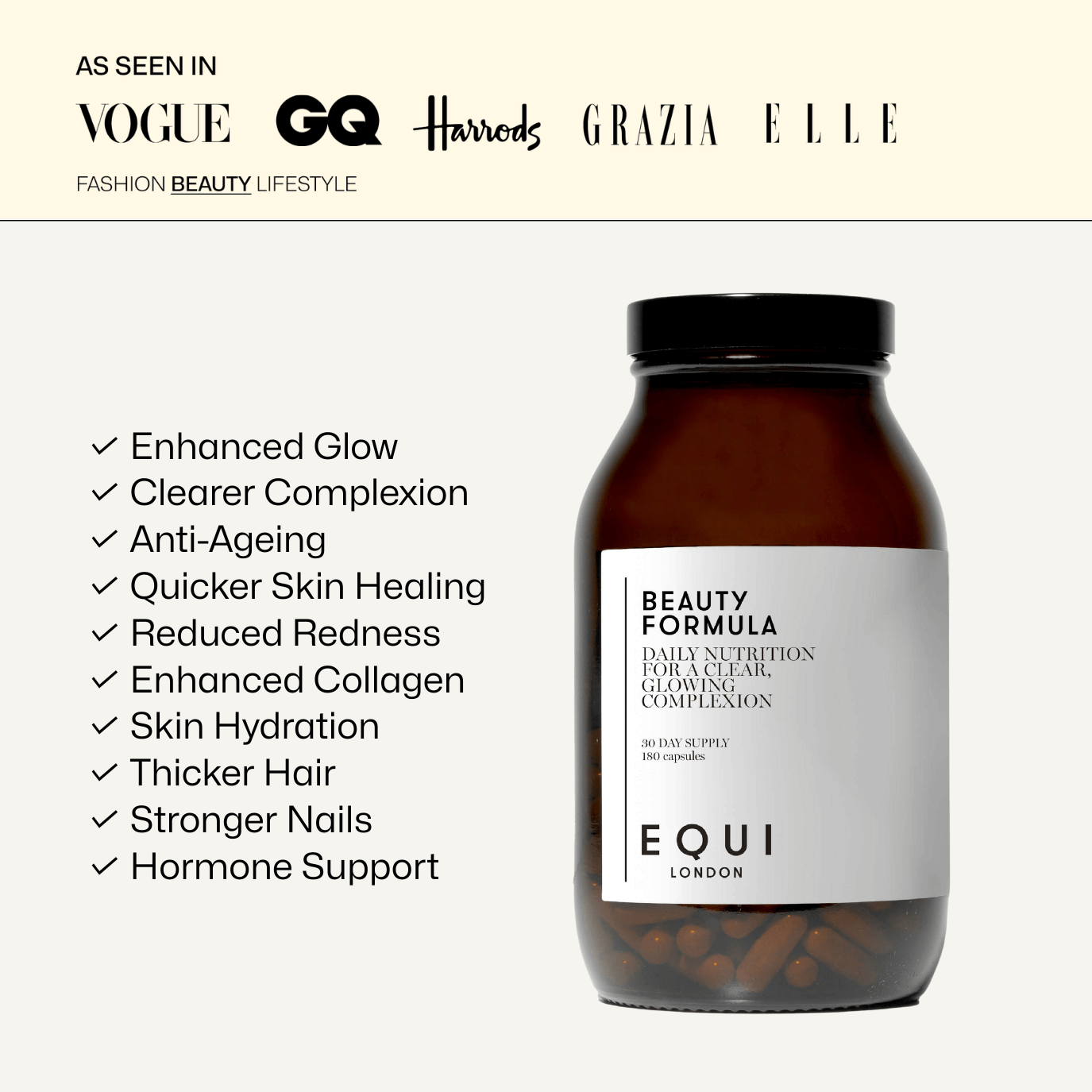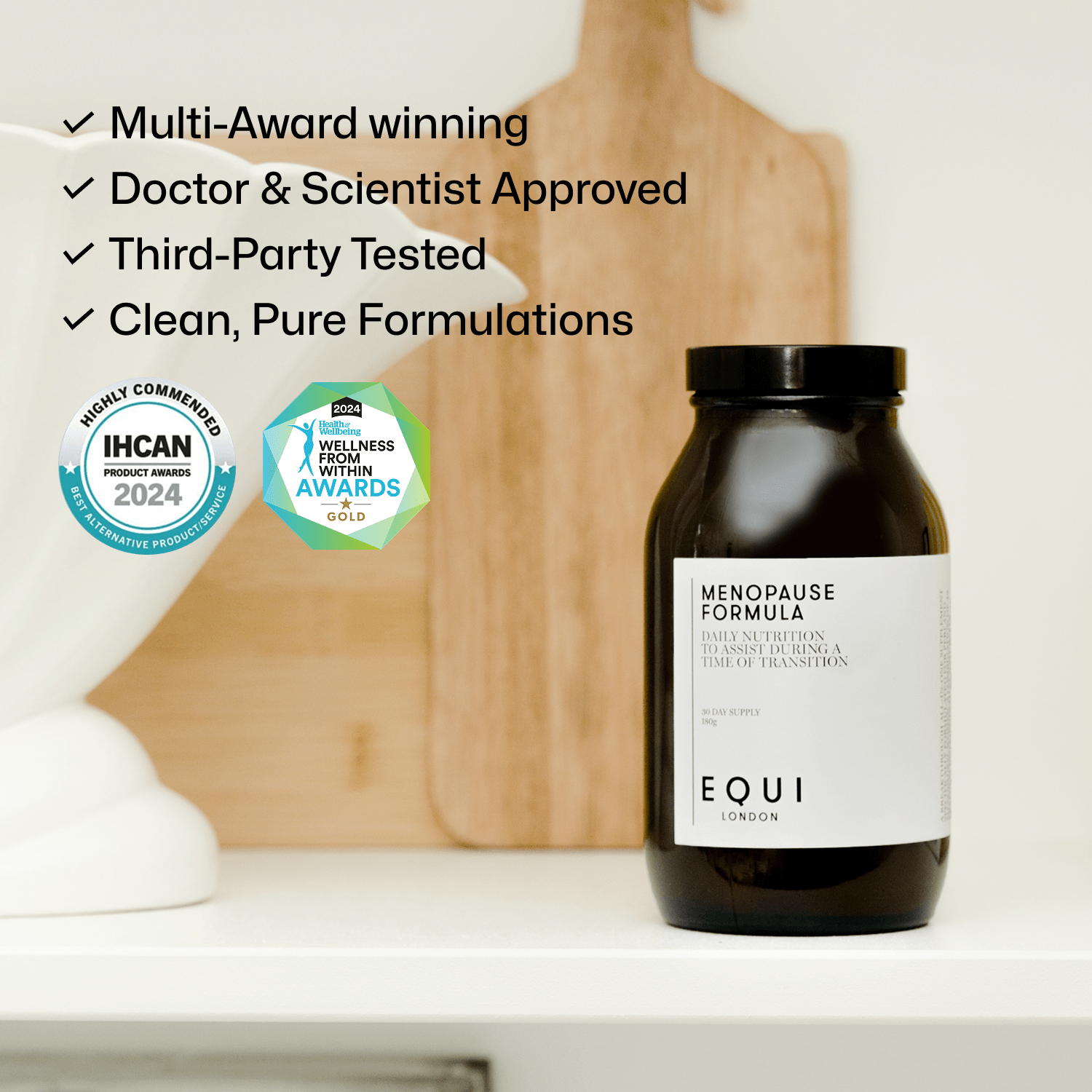
Welcome to today’s blog, which is a guide designed to highlight the intricate relationship between nutrients within our bodies and how their combined effects can vastly improve our health and wellness. Understanding how certain nutrients enhance each other's functions and uptake is not just fascinating—it's fundamental for optimising our health and wellness. This synergy between nutrients can unlock doors to heightened well-being, vitality, and balance, particularly as we navigate the complexities of our modern lifestyles. Today, we will explore the dynamic partnerships formed between various vitamins, minerals, and compounds that, when combined, amplify our body's ability to absorb, utilise, and benefit from them. These nutrient partnerships do more than just add up; they multiply their benefits, resulting in greater effects than you might expect from each nutrient alone. This knowledge will empower us to make informed choices about our diet and supplementation, ensuring we're not just consuming nutrients but truly benefiting from them. Take, for instance, the relationship between magnesium and vitamin D—a duo that exemplifies the concept of nutritional synergy. Optimal magnesium levels are crucial for maximising vitamin D's benefits, including its role in bone health, immune function, and inflammation reduction. Magnesium acts as a cofactor, aiding in the activation of vitamin D into its usable form in the body. This synergy highlights the necessity of a balanced approach to supplementation, one where ensuring adequate magnesium intake can significantly enhance vitamin D's effectiveness and the myriad health benefits it offers.
Throughout this blog, we will delve into various nutrients that underscore the importance of synergistic nutrition. We will explore how magnesium acts as the key that unlocks vitamin D's full potential, including the mechanisms behind this interaction and the health implications of their synergy. Also, how vitamin C enhances iron absorption, crucial for preventing iron-deficiency anaemia, and promoting overall vitality, especially in plant-based diets where iron is less readily absorbed. When it comes to calcium, vitamin D, and K2, we will be unpacking how this trio work together to ensure calcium is not only absorbed but also directed to where it's needed most—our bones—thereby promoting skeletal health and preventing vascular calcification.
In each of these discussions, we will highlight how our Wellness Formula, with its carefully curated blend of bioavailable nutrients is designed to support these synergistic relationships within the body. This Formula isn't just about supplying nutrients; it's about creating harmony and optimising the body's natural processes to enhance wellness from within. Today’s blog is more than a guide; it's a pathway to understanding how to support your body holistically. By harnessing the power of nutrient synergy, we can unlock higher levels of health, vitality, and well-being, making every day an opportunity for nourished living. Join us as we explore the fascinating world of nutrients working in tandem and discover how EQUI Wellness Formula can be an integral part of your journey towards optimal health.
The Magnesium-Vitamin D Connection
Magnesium and vitamin D form a critical partnership in supporting various bodily functions, including bone density enhancement, calcium absorption, and immune system support. This synergistic relationship is rooted in the biochemical processes that activate and utilise vitamin D within our bodies, processes that are heavily dependent on magnesium. In fact, one study concluded that optimal magnesium status may be important for optimising 25(OH)D status (1). This is because magnesium plays a pivotal role in converting vitamin D into its active form, a process essential for the regulation of calcium levels in the blood and bone health. In the liver, magnesium is required to convert vitamin D into its precursor, 25-hydroxyvitamin D (25(OH)D). This precursor is then transformed into the active form, 1,25-dihydroxyvitamin D (1,25(OH)2D), in the kidneys, a step that also requires magnesium. These enzymes, responsible for synthesising and activating vitamin D, rely on magnesium. Without sufficient levels of this mineral, vitamin D cannot be converted into its active form, diminishing its effectiveness in enhancing bone density, aiding calcium absorption, and bolstering the immune system. Another study emphasised the necessity of magnesium for optimal vitamin D status, bone health and immune function and they recommend magnesium supplementation to improve vitamin D status (2).
Dietary sources of magnesium include leafy green vegetables, nuts, seeds, whole grains, and legumes. For vitamin D, we need sun exposure to produce it but fatty fish, egg yolks, and mushrooms are dietary sources. However, due to spending less time outdoors in our modern world and food sources not providing adequate levels, it can lead to deficiencies. What’s more, stress and exercise can increase our need for magnesium whilst declining food quality due to soil depletion have contributed to widespread magnesium deficiency. This shortfall can compromise the body's ability to activate vitamin D, highlighting the importance of ensuring adequate magnesium intake. Supplementation can offer a practical solution, with magnesium bisglycinate touted for its superior absorption and bioavailability. This form of magnesium, found in Wellness Formula, minimises gastrointestinal discomfort and maximises efficacy, supporting the optimal functioning of vitamin D within the body. To mitigate the risks associated with deficiencies, integrating a balanced diet rich in magnesium and vitamin D sources, alongside targeted supplementation, is advisable.
The magnesium-vitamin D partnership is indispensable for maintaining bone health, ensuring proper calcium absorption, and supporting immune function. Recognising the prevalence of magnesium deficiency and its impact on vitamin D activation, we ensured all our Formulas contain both these nutrients in bio available and optimal forms. Wellness Formula contains the recommended daily dosage of vitamin D alongside absorbable magnesium bisglycinate. Shop Wellness Formula here.
Boosting Iron Absorption with Vitamin C
Iron deficiency anaemia is a prevalent concern, particularly among vegetarians and vegans, due to the reliance on plant-based sources of iron, which are less readily absorbed by the body compared to heme iron from animal products. The strategic pairing of vitamin C with iron sources is a helpful approach to enhance iron absorption, combatting iron deficiency and supporting overall health. Vitamin C, an antioxidant which plays a critical role in increasing the bioavailability of non-heme iron, the form of iron found in plant foods. Research has demonstrated that vitamin C significantly increases the absorption of non-heme iron, highlighting its potential in preventing iron deficiency anaemia, especially among those following plant-based diets (3).
Pairing vitamin C with heme iron, found in animal products like red meat, poultry, and fish, can also increase its uptake. While heme iron is already more easily absorbed by the body compared to non-heme iron from plant sources, the presence of vitamin C further enhances this absorption. Vitamin C converts the iron into a form that is more soluble and easier for the intestinal lining to absorb. This effect is beneficial for maximising the iron obtained from the diet, contributing to better overall iron status, and helping prevent iron deficiency. The synergistic relationship between vitamin C and both forms of iron underscores the importance of a diet rich in both nutrients, especially for individuals at risk of iron deficiency or those looking to optimise their iron levels. This interaction not only maximises iron uptake but also assists in the maintenance of energy levels, supports the immune system, and aids in protecting cells from oxidative stress. At EQUI, we recognise this synergy, combining an optimal dosage of vitamin C with iron in all our Formulas to create a comprehensive supplement tailored to women’s needs or anyone looking to enhance their iron absorption. And Wellness Formula is no different – it contains both vitamin C and iron is optimal and bioavailable forms.
Incorporating vitamin C-rich foods into meals containing plant-based iron sources can also significantly boost iron absorption. Here are some practical examples of food pairings and meal ideas:
Breakfast - A smoothie made with spinach (which contains iron), strawberries, and kiwi (for vitamin C).
Lunch - A quinoa salad with beans (which contains iron), topped with peppers, tomatoes, and a squeeze of lemon juice (all containing vitamin C).
Dinner – A beef chilli (which contains iron) cooked in a tomato sauce and served with a side of steamed broccoli (both containing vitamin C).
These pairings not only enhance iron absorption but also contribute to a balanced and nutritious diet that supports overall health.
The strategic pairing of vitamin C with iron sources presents a valuable nutritional strategy to combat iron deficiency anaemia, particularly for vegetarians and vegans. Wellness Formula, with its optimal blend of vitamin C and iron, offers a practical solution to enhance iron absorption, supporting energy levels, immune function, and cellular protection. Shop Wellness Formula here.
The Essential Trio for Bone Health - Calcium, Vitamin D, and K2
The health of our bones is a complex interplay between various nutrients, among which calcium, vitamin D, and vitamin K2 stand out for their critical roles. These nutrients work synergistically to not only strengthen the skeletal system but also to ensure that calcium deposition occurs in the right places, such as in bones, rather than in arteries where it can lead to calcification and cardiovascular issues. Understanding the interconnected roles of these nutrients is essential for maintaining bone health and preventing arterial calcification. Calcium is well-known for its role in building and maintaining strong bones and teeth. It's the most abundant mineral in the body, primarily stored in bones and teeth, where it provides structural support. However, research highlights calcium's effectiveness is heavily dependent on the presence of vitamin D and K2 for proper absorption and utilisation (4). Vitamin D plays a crucial role in calcium absorption from the diet. Without sufficient vitamin D, the body cannot absorb calcium, regardless of how much is consumed. Once absorbed, vitamin D also helps to regulate calcium's distribution, ensuring it's delivered to where it's needed most: the bones. It's a vital player in bone mineralisation, working closely with calcium to enhance bone density and strength. Vitamin K2 goes a step further by activating proteins that bind calcium to bones and teeth. Vitamin K2 essentially ensures that calcium contributes to bone health.
Wellness Formula recognises the importance of these interactions and has thoughtfully combined calcium, vitamin D, and K2 in optimal levels to support the skeletal system. This combination harnesses the synergistic potential of these nutrients, maximising bone health and ensuring that these nutrients get to all the right places. Achieving a balanced intake of calcium, vitamin D, and vitamin K2 can be challenging through diet alone, especially considering modern lifestyles and dietary habits. Sunlight exposure, which stimulates vitamin D production in the skin, can be limited for many people. Meanwhile, dietary sources of vitamin K2 (such as natto, a fermented soy product, and certain animal products) are not commonly consumed in sufficient amounts in Western diets. So, supplementation with Wellness Formula can bridge this gap, ensuring that we receive these essential nutrients in optimal amounts. However, it's also important to strive for a balanced diet rich in calcium (from leafy greens, dairy, tahini, and fortified foods), vitamin D (from fatty fish, egg yolks, and mushrooms), and vitamin K2 (from fermented foods and certain cheeses).
Introducing Wellness Formula
Achieving a state of vitality is a comprehensive endeavour, necessitating a holistic approach that caters to every facet of our well-being. Optimal health is more than just the absence of illness; it's about having good digestion, hormonal balance, restorative sleep, and robust immunity working in harmony to bolster our resilience against the stresses of daily life. However, maintaining this intricate balance is challenging amidst the hustle and bustle of modern living.
This is where Wellness Formula steps in, offering a transformative solution to holistic health. This exceptional Formula brings together 46 pure, meticulously selected nutrients, each with a proven track record of bolstering health and vitality in both men and women. Crafted with the guidance of leading nutritional scientists, Wellness Formula is designed to lay a solid foundation for health, providing the body with the vital nutrients it needs to flourish.
The Formula's comprehensive nature ensures that every dose rejuvenates the body and mind, promoting energy, focus, restfulness, and resilience. It targets the core pillars of health—digestion, hormonal equilibrium, sleep quality, and immune function—enhancing each to ensure they operate flawlessly, even amid the challenges posed by our fast-paced lifestyles. Taking Wellness Formula daily is like giving your body and mind a tune-up, ensuring all systems are optimised for peak performance. It's not just about addressing specific health concerns; it's about elevating your overall quality of life, ensuring you feel revitalised and ready to tackle whatever comes your way. In a world where health can often take a backseat to other priorities, Wellness Formula stands out as the ultimate ally in your journey toward holistic well-being, offering you vitality in the complex landscape of modern health.
References
- Dai Q, et al. (2018). Magnesium status and supplementation influence vitamin D status and metabolism: results from a randomized trial. Am J Clin Nutr. 108(6), pp. 1249-1258
- Uwitonze, A.M. & Razzaque, M.S. (2018). 'Role of Magnesium in Vitamin D Activation and Function.' Journal of the American Osteopathic Association, 118(3), pp. 181-189.
- Teucher, B., Olivares, M., & Cori, H. (2004). 'Enhancers of iron absorption: ascorbic acid and other organic acids.' International Journal for Vitamin and Nutrition Research, 74(6), 403-419.
- Fleet JC. (2017). The role of vitamin D in the endocrinology controlling calcium homeostasis. Mol Cell Endocrinol. 15;453, pp. 36-45












